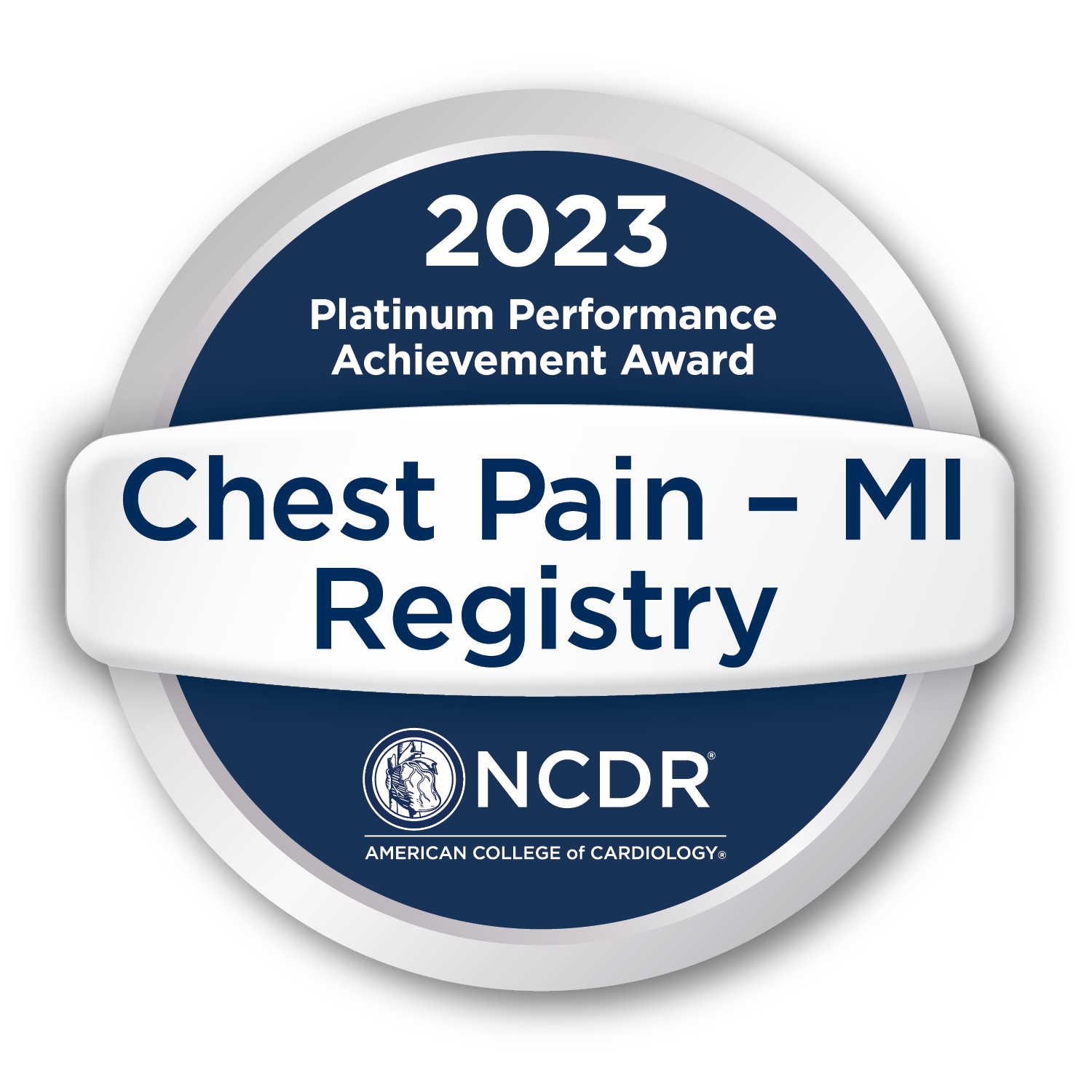Sometimes, heart attack warning signs can be missed because they may be minor or explained away. However, it is important to seek emergency care if you experience:
- Chest pain or discomfort that lasts more than a few minutes.
- Pain or discomfort in your arm, back, neck or jaw.
- Shortness of breath.
- Nausea.
- Lightheadedness.
If you or someone you know is experiencing a heart attack, call 911 immediately.
During a heart attack, every second counts. The longer you wait to get help, the more damage your heart suffers. It’s important to have access to experts who can deliver the care you need quickly. It can save your life and protect your heart.
Coming to the emergency department with chest pain or other signs of a heart attack can be scary and overwhelming. When you or your loved one arrives at a Nebraska Medicine Emergency Department, you can expect a team of experts ready to start treatment as quickly as possible.
What to expect
When you arrive at the emergency department, an assessment will begin immediately. If you have chest pain, doctors will check for heart-related causes. An electrocardiogram (EKG) will be done immediately to determine what treatment you need.
If you are having a heart attack, you may be treated with medication or taken for a procedure called angioplasty to open the blocked blood vessel in your heart. Once stable, you will be admitted to the hospital for more treatment and monitoring. Your care team will include interventional cardiologists, who are specialized doctors trained to open blocked vessels and insert special devices to keep the vessels open.
Why you should choose Nebraska Medicine
Because heart attack signs and symptoms can be missed, we understand that a diagnosis is often a surprise. Nebraska Medicine doctors take the time to help you understand your diagnosis, treatment options and what you can expect from your care.
Nebraska Medicine is accredited as a Chest Pain Center by the American College of Cardiology. This recognition highlights our dedication to quickly diagnosing and treating heart attacks to minimize damage to the heart muscle. You can trust our heart attack care team to provide the most comprehensive, compassionate care available in the region.
Life doesn’t stop after a heart attack. We also offer cardiac rehabilitation to help you recover from heart conditions and prevent future ones. Our experts will work with you to create a personalized treatment plan that meets your needs and keeps your heart healthy.
Our Locations
-

Emergency Services at Bellevue Medical Center
2500 Bellevue Medical Center Drive
Get Directions
Bellevue, NE 68123 -
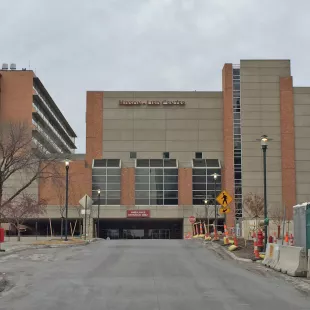
-
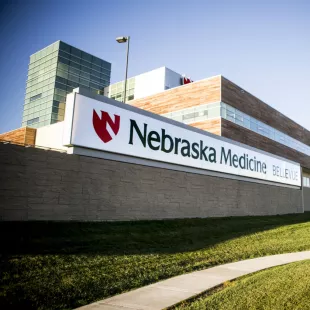
Heart and Vascular Center at Bellevue Health Center
2510 Bellevue Medical Center Drive, Suite 150
Get Directions
Bellevue, NE 68123 -
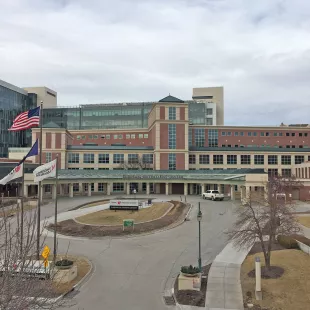
-

Heart and Vascular Center at Village Pointe Health Center
17405 Burke Street
Get Directions
Omaha, NE 68118
-
Symptoms and early warning signs of heart attack
Use this page as a reference guide for recognizing if what you're seeing or experiencing may be a heart attack.
View More -
Emergency care
Calling 911 can help you receive treatment as soon as you call. Dispatchers are trained to instruct callers while Emergency Medical Service (EMS) providers are on their way
View More -
Reduce your risk of heart disease
Some risk factors for heart attacks can be changed, others cannot. It is important to know your risk factors and what you can do to reduce them.
View More -
Physician resources for STEMI transfer
If you are a doctor looking for information on transferring an acute heart attack patient, this is the page you want.
View More
Awards and Accreditations
Nebraska Medicine has achieved a Chest Pain Center with Primary Percutaneous Coronary Intervention (PCI) & Resuscitation designation from the American College of Cardiology.
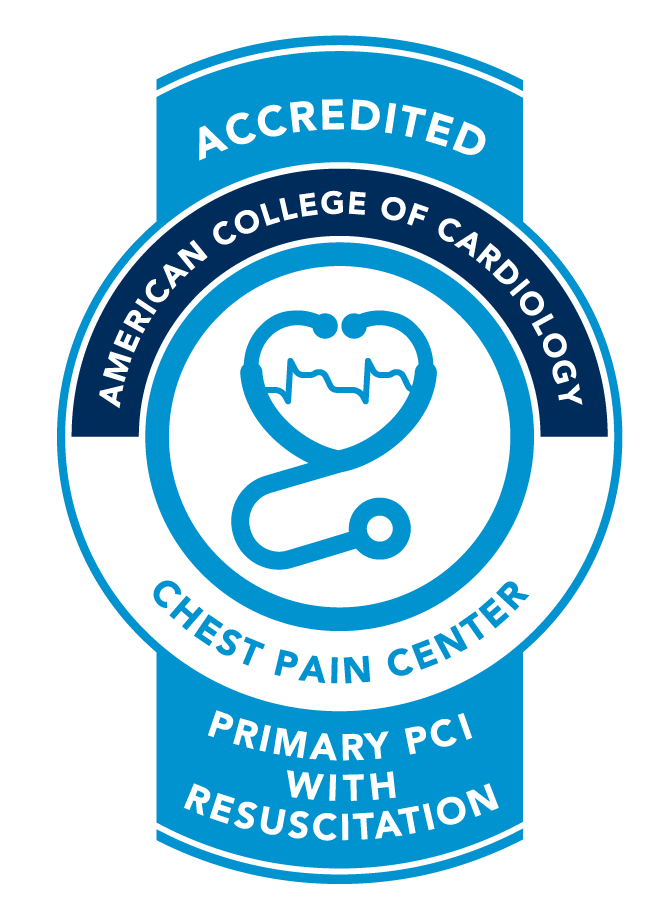
Nebraska Medicine has demonstrated the highest level of achievement in the American College of Cardiology’s Chest Pain/MI Registry® by achieving platinum performance from 2021 through 2023. This annual award program recognizes participating facilities that have demonstrated sustained, top-level performance in quality of care and adherence to guideline recommendations.
